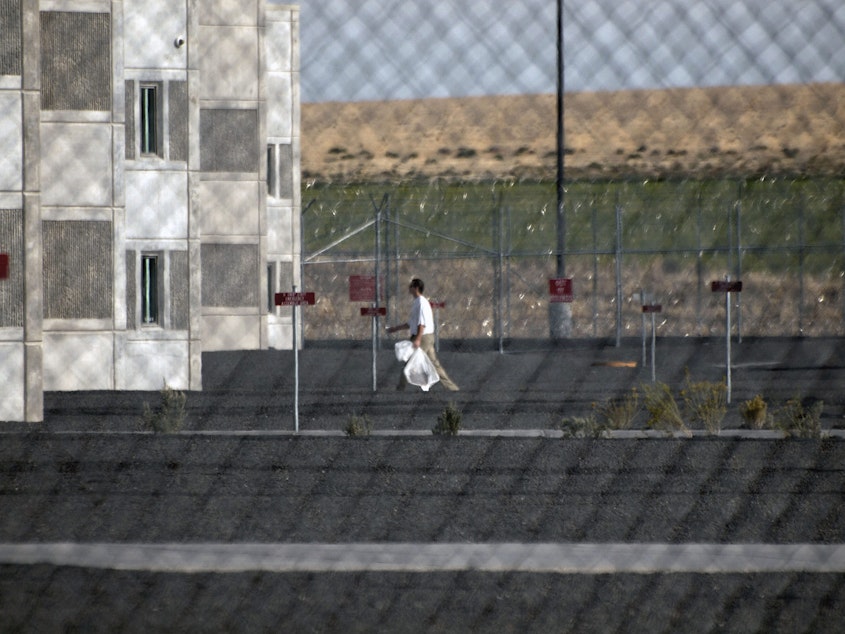Report finds faults in the coronavirus response at a Central WA prison

As the country heads into what could become the most deadly surge of the pandemic yet, focus is falling again on high-risk populations, including people housed in long-term care facilities and prisons.
A recent independent report looked at what happened when officials were faced with a Covid-19 outbreak at the Coyote Ridge Corrections Center in Central Washington. Although staff prevented the coronavirus from getting into the unit with the oldest and most vulnerable inmates, hundreds of others got sick and two people died.
KUOW’s Ashley Hiruko reports about the state's investigation into Coyote Ridge, and what happened after an inmate got sick with coronavirus in May.
This interview has been edited for clarity.
The report says that when this first inmate caught the coronavirus, prison staff didn't act quickly enough. It was days before this person was tested. Other inmates told the Ombuds office that when they reported Covid-19 symptoms, they were not immediately seen by health services.
Inmates also told investigators that corrections officers were not consistently wearing masks. On top of this, the Ombuds office found that the facility medical director, Dale Fetroe, was absent.
I spoke with Kristin Bowling, whose partner was at Coyote Ridge during the first outbreak. She said that when she read the report and saw that the medical director wasn't there, she was not surprised by that:
Sponsored
We asked about him the whole time during the first outbreak. And he was never mentioned, was never on any of the calls to inform how their decisions were being based on clinical decision making, and not by the custody staff. So that part of the report rings very true to us as families.
On those weekly calls, we would hear from the superintendent, the assistant superintendent, and there was never anyone on that call with medical training who could answer our questions about why those decisions were being made.
The report says that key medical figures were either absent or sidelined when it came to making these decisions that were impacting the inmates there who were exposed to this virus.
Today, we're seeing that more than 300 inmates have caught the coronavirus — two of which died. About 120 staff have tested positive. The concerns the families had early on, these were all things that I heard. All things in this report were completely justified.
Sponsored
The key recommendations coming from the Ombuds office are that the Department of Corrections (DOC) should engage in greater preparedness and training; that they shouldn't deny inmates privileges when they're put in isolation after reporting Covid-19 symptoms; and that they should be monitoring inmates before they come down with coronavirus symptoms.
The DOC, in their response to the recommendations, has said that they're going to make some of these changes, and some of them they've already made. When it comes to the recommendation of daily mass screening of the entire prison population, the DOC said that they simply don't have the resources to do this.
Sponsored
What we do know is that as of November 6, the DOC has said they are now requiring all staff across all of their departments to wear surgical masks. That wasn't the case before. But, we're still seeing cases grow.
Family members told me today that they're hearing from those inside that cases are still growing at Coyote Ridge. And just recently, the Washington State Penitentiary in Walla Walla has now surpassed Coyote Ridge with 316 cases.
Will these recommendations change anything at all? Will this report change anything? Will we still see cases balloon and more inmates die? Of course, this differs from the question that I've heard from family members who've read this and ask, where is the accountability?
Listen to the interview by clicking the play button above.





